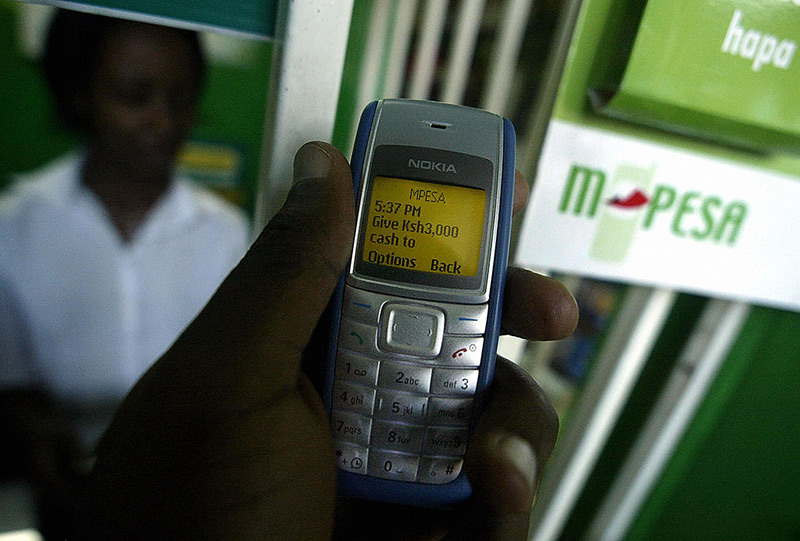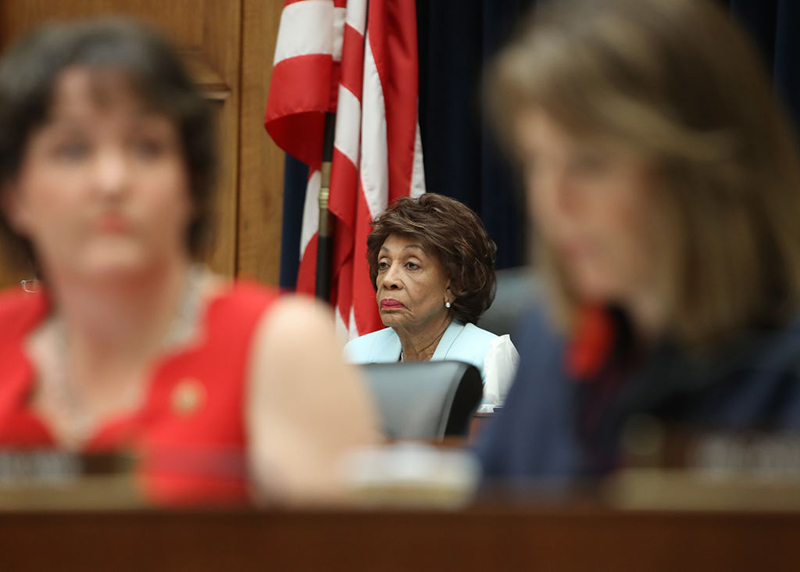Libra面臨四大挑戰(zhàn)
|
Facebook在盛大的加密貨幣啟動儀式上夸下??冢篖ibra將讓支付比以往任何時候都更加便利,,并幫助17億“未獲得銀行服務的”人享受到金融服務,。 但Libra發(fā)布的聲明并沒有得到普遍的贊譽,。監(jiān)管方和行業(yè)觀察人士對新加密貨幣做出的承諾(或者換個立場來看的話,,甚至可稱之為威脅)深感懷疑,,而且理由是多方面的。 我們當然有理由認為Libra可能會成功,,因為Facebook在全球有著無可匹敵的覆蓋范圍,,而且顯然也有能力勸說行業(yè)合作伙伴加入其中。但下文列舉了Libra可能無法實現(xiàn)的幾點原因: 數(shù)字支付 Facebook的博文宣布,,公司計劃推出的Colibra數(shù)字錢包——其實也就是能夠讓人們使用Libra的應用——承諾:“假以時日,,我們希望為人們和企業(yè)提供額外的服務,例如通過單擊按鈕支付賬單,,通過掃碼購買咖啡或無需攜帶現(xiàn)金或地鐵通票便可搭乘公共交通,。” 正如《衛(wèi)報》(Guardian)的前任科技文章編輯查爾斯·亞瑟在推特(Twitter)上適時調(diào)侃的那樣:這個功能雖然可能已經(jīng)在Facebook本土市場美國實現(xiàn),,但就消費金融服務而言,,它已經(jīng)過時了。 這種感覺就像,,你已經(jīng)意識到,,對于設計Facebook虛擬貨幣的美國人來說,無接觸式支付在他們所生活的環(huán)境已經(jīng)不是什么新鮮事,。pic.twitter.com/pmTtyRGYYn — 查爾斯·亞瑟(@charlesarthur),,2019年6月18日 在世界其他很多地區(qū),人們已經(jīng)習慣通過將智能手機放在識別器上來支付咖啡或搭乘交通工具,。至于支付賬單,目前有大量的方式通過使用普通貨幣來實現(xiàn)這一點,,例如自動化的直接借記,,以及包括瑞典應用Klarna在內(nèi)的銀行應用和金融科技服務,。 向其他用戶進行小額轉賬的功能呢?已經(jīng)有不少了,,其中包括PayPal和其Venmo應用,。這并非是個新問題,而且解決方案早就有了,。 未獲得銀行服務的用戶 正如Facebook及時指出的那樣,,幾乎全球半數(shù)的成年人都沒有銀行賬戶,發(fā)展中國家和女性中的這個數(shù)字更低,。公司稱,,解決方案可能在于Colibra錢包。 其中一個問題在于,,這些沒有銀行賬戶的人也沒有智能手機,。南非的科技行業(yè)觀察人士托比·沙普沙克向《獨行者日報》(Daily Maverick)透露:“即便人們有智能手機,獲取數(shù)據(jù)的成本也會讓人們望而卻步,。除非應用使用起來足夠簡單,,能夠便利地在系統(tǒng)中存錢或取錢,而且很容易理解,,否則就已經(jīng)處于劣勢,。” 長期以來,,一些移動運營商一直在應對這個問題,。其中一個典型案例就是肯尼亞由沃達豐支持的Safaricom。該公司在12年前推出了一個名為M-Pesa的移動銀行服務,。沒有銀行賬戶的客戶也是M-Pesa的目標,,他們甚至使用最原始的手機來獲取或使用金融服務。在使用SIM卡驗證其身份后,,人們可以在無處不在的服務終端存取款,。 |
Facebook’s big cryptocurrency reveal came with big promises: Libra will make payments more convenient than ever, and help 1.7 billion “unbanked” people access financial services. But the announcement of Libra has not been greeted with universal acclaim. Regulators and industry observers see a range of reasons to be deeply skeptical about what the new cryptocurrency promises or—depending on one’s standpoint—threatens. There are certainly reasons to believe Libra could be a success, namely Facebook’s unmatched global reach and its apparent ability to get industry partners on board. But here’s a breakdown of the reasons why Libra may not fly: Digital payments Facebook’s blog post announcing its planned Colibra digital wallet—essentially an app allowing people to use Libra—promises that “in time, we hope to offer additional services for people and businesses, like paying bills with the push of a button, buying a cup of coffee with the scan of a code or riding your local public transit without needing to carry cash or a metro pass.” As former Guardian tech editor Charles Arthur rightly scoffed on Twitter, this may be a function of the U.S., Facebook’s home market, being behind the times when it comes to consumer financial services. Tfw you realise that the Americans who designed Facebook’s cryptocurrency live in a world where contactless payments basically aren’t a thing pic.twitter.com/pmTtyRGYYn — Charles Arthur (@charlesarthur) June 18, 2019 In much of the rest of the world, people are used to tapping their smartphones on a reader to pay for a coffee or a ride on public transit. As for paying bills, there are myriad ways to achieve this online using regular currency, from automated direct debits to banking apps and financial technology services such as the Sweden-based app Klarna. How about passing money to other users with minimal fuss? Well, there’s already PayPal and its Venmo app for that, among many other alternatives. The problem is not new, and nor are the solutions. The unbanked As Facebook rightly points out, almost half of the world’s adults lack bank accounts, with figures being worse in developing countries and among women. The solution, it says, could lie in the Colibra wallet. One problem here is that many of those who lack bank accounts also lack smartphones. “Even if people own a smartphone, the cost of data can be prohibitive,” South African tech industry observer Toby Shapshak told the Daily Maverick. “Unless it is simple to use, simple to get cash in and out of the system and easy to understand, it’s already at a disadvantage.” Some mobile operators have already been tackling this problem for a long time, notably Kenya’s Vodafone-backed Safaricom, which launched a mobile banking service called M-Pesa a dozen years ago. M-Pesa also targets the unbanked, using even basic phones as a way to access and use financial services—people can deposit and withdraw funds from widespread kiosks, with their SIM card validating their identity. |

|
人們甚至可以使用各種各樣的服務,,從國外向M-Pesa用戶的手機匯款。Facebook將Libra描述為一種能夠避免高昂國際匯款費用的方式,,這個問題倒是由來已久,,但無獨有偶,數(shù)年前人們就已經(jīng)開始著手解決這一問題了,。 M-Pesa目前已經(jīng)進駐了很多國家,,例如印度,、南非,甚至一些東歐國家,。有意思的是,,沃達豐是即將運營新虛擬貨幣的Libra協(xié)會的成員之一,我們?nèi)匀徊磺宄@家運營商巨頭是否已經(jīng)看到了這兩個系統(tǒng)之間相互影響的問題,,亦或這家公司交1000萬美元會費的目的就是為了留意事態(tài)的進展,。(截至發(fā)稿之日,沃達豐并未對置評要求進行回復,。) 此外,,《金融時報》(Financial Times)對Libra首發(fā)的報道也是充滿了冷嘲熱諷,它指出,,F(xiàn)acebook的新虛擬貨幣并未解決人們沒有銀行賬戶最常見原因:他們沒有足夠的錢存入銀行,,因此這是一個社會經(jīng)濟問題,而不是技術問題,。 監(jiān)管問題 Libra協(xié)會在發(fā)布材料中稱“在Libra網(wǎng)絡的早期開發(fā)過程中,,其創(chuàng)始成員一直都在與當局通力合作,制定鼓勵技術創(chuàng)新,、維持最高消費保護標準的監(jiān)管框架,。”此言論基本上也就為監(jiān)管方的勃然大怒埋下了伏筆,。 這聽起來就像是馬克·扎克伯格在今年2月的聲明中稱,,F(xiàn)acebook在隱私和虛假信息領域能夠“遵守有意義的法規(guī)”。監(jiān)管方和立法者通常會將自己看作是法規(guī)的制定者而不是接受方,。 因此,,大西洋兩岸的監(jiān)管方和決策者們均抨擊了Libra項目。在美國,,眾議院金融服務委員會主席馬克辛·沃特斯(加州民主黨)要求Facebook在國會和監(jiān)管方抽時間分析其影響之前,,停止Libra項目的開發(fā)。沃特斯是民主黨,,但委員會的主管共和黨眾議員北卡羅萊州的帕特里克·麥克亨瑞亦同意沃特斯的觀點,。他警告說:“其中存在很多有待解決的問題,例如項目的廣度和規(guī)模,,如何才能與美國的全球金融監(jiān)管框架保持一致,。” |
People can even send money from abroad to an M-Pesa user’s phone, using a variety of services. Facebook is pitching Libra as a way to avoid high international remittance fees, which have traditionally been a problem, but again, people have already been solving this problem for a few years now. M-Pesa is now used in many countries from India to South Africa, and even in parts of Eastern Europe. Interestingly, Vodafone is one of the members of the Libra Association that will run the new cryptocurrency—it remains to be seen whether the carrier giant sees scope for interplay between the two systems, or whether it simply shelled out the Association’s $10 million membership fee in order to keep an eye on what’s going on there. (Vodafone had not, at the time of publication, responded to a request for comment.) Also, as the Financial Times has noted in its über-cynical coverage of Libra’s launch, Facebook’s new virtual currency does nothing to address the most common reason people don’t have bank accounts: they don’t have enough money to put in them. And that’s a socio-economic rather than technical problem. Regulatory pushback The Libra Association pretty much guaranteed the ire of regulators when it said in launch materials that “in the early development of the Libra network, its Founding Members are committed to working with authorities to shape a regulatory environment that encourages technological innovation while maintaining the highest standards of consumer protection.” That sounds a lot like Mark Zuckerberg’s February pronouncement that he is “open to meaningful regulation” for Facebook in the fields of privacy and disinformation. Regulators and lawmakers tend to see themselves as the givers of rules, not the takers. And so regulators and lawmakers on both sides of the Atlantic have pounced on the Libra project. In the U.S., House Financial Services Committee Chair Maxine Waters (D–Cali.) has asked Facebook to pause Libra’s development until Congress and regulators have had time to parse the implications. Waters is a Democrat, but the committee’s ranking Republican, Rep. Patrick McHenry of North Carolina, agrees with her, warning of “many open questions as to the scope and scale of the project and how it will conform to our global financial regulatory framework.” |

|
在歐洲,,法國財政部部長布魯諾·勒梅爾稱,Libra成為傳統(tǒng)貨幣替代物這件事“不能也絕對不允許發(fā)生”,,而且敦促G7央行行長緊急調(diào)查該系統(tǒng),。英國央行的行長馬克·卡尼還表示,,像G7、國際貨幣基金組織和國際清算銀行這樣的機構應該以“協(xié)同的形式”來應對事態(tài)的發(fā)展,。
他們可能會這么做??嶂赋?,“在這一領域任何可行的事物會很快系統(tǒng)化?!北O(jiān)管方不希望此事演變?yōu)橥鲅蜓a牢的游戲,。
信任問題
勒梅爾還警告說,F(xiàn)acebook的Colibra錢包“甚至能讓這家公司獲得更多的數(shù)據(jù),,這一結果只會讓我們更加堅定對這家互聯(lián)網(wǎng)巨頭加強監(jiān)管的決心,。”這也帶來了最后一個問題:信任,。Facebook在隱私承諾兌現(xiàn)方面的記錄并不怎么好,,因此這一次又會有什么區(qū)別呢?
此次,,F(xiàn)acebook鄭重承諾,,公司在未經(jīng)用戶同意的情況下不會將來自于Colibra的財務數(shù)據(jù)用于廣告目的。但公司如何才能得到用戶的首肯,,監(jiān)管方對這一機制又有什么看法,?別忘了,F(xiàn)acebook已經(jīng)因為其征求用戶同意的方式在歐洲遭到起訴,,其征求同意的目的在于將用戶數(shù)據(jù)用于向他們推送廣告,。
正如《財富》雜志的羅伯特·哈科特所指出的那樣,F(xiàn)acebook堅持認為數(shù)據(jù)整合只有在用戶明確決定加入后才會發(fā)生,,而且這一點依然是不具有約束力的隱私政策,。這是Facebook在Libra和Colibra推出一年之前所做的承諾。還記得Facebook是如何承諾自己絕不會合并WhatsApp與Facebook數(shù)據(jù)的嗎,?事實證明,,這個承諾并不怎么值錢。鑒于Facebook可能會因為違背其他多個隱私承諾,,而面臨來自于聯(lián)邦交易委員會的嚴厲斥責和巨額罰款,,因此短時間內(nèi),F(xiàn)acebook在隱私方面的形象必然難以得到改觀,。
TechCrunch的喬什·康斯丁還注意到,,Libra協(xié)會并沒有主動對有意開發(fā)承載Libra的數(shù)字錢包的開發(fā)商進行審查。因此,,盡管Facebook自家的Colibra錢包會具有很高的安全性,,客戶支持以及賬號被盜之后的退款功能,,效仿劍橋分析公司(Cambridge Analytica)而打造的影子虛擬貨幣在理論上也能夠打造其自有的錢包,而消費者可能會因此而面臨Libra貨幣損失的風險,。
但上述任何疑點并不意味著Libra必然無法成功,,再者,F(xiàn)acebook也有著無與倫比的覆蓋面,。然而,,Libra也并非就是十拿九穩(wěn),F(xiàn)acebook有必要詳細說明該系統(tǒng)如何能夠?qū)崿F(xiàn)其崇高目標,。(財富中文網(wǎng)) 譯者:艾倫 審校:夏林 |
In Europe, French Finance Minister Bruno Le Maire said it “can’t and must not happen” that Libra becomes a replacement for traditional currencies, and has urged G7 central bank governors to urgently look into the system. Bank of England Governor Mark Carney also said organizations such as the G7, the International Monetary Fund and the Bank for International Settlements would have to handle the development in “a coordinated fashion.”
As well they might. As Carney noted, “anything that works in this world will become instantly systemic.” Regulators do not want to find themselves playing catch-up here.
The trust issue
Le Maire also warned that Facebook’s Colibra wallet “will allow this company to assemble even more data, which only increases our determination to regulate the Internet giants.” Which brings us to the final problem: trust. Facebook has a dismal record when it comes to keeping its privacy promises, so why would this time be different?
The big promise in this case is that Facebook won’t use financial data from Colibra for ad-targeting purposes without users’ consent. But how will it get that consent, and what will regulators say about that mechanism? Bear in mind that Facebook is already being sued in Europe over the way it gathers consent from users for using their data to target ads at them.
As Fortune’s Robert Hackett has pointed out, Facebook’s insistence that data-merging will only take place after explicit opting-in is still not a binding privacy policy. It’s a promise being made probably a year or so before Libra and Colibra launch. Remember how Facebook once swore it would never merge WhatsApp and Facebook data? That promise didn’t turn out to be worth much. And with Facebook facing likely censure and a fat fine from the Federal Trade Commission over its breaking of various other privacy promises, it’s not like Facebook’s image on the privacy front is set to improve anytime soon.
TechCrunch’s Josh Constine has also noted that the Libra Association won’t actively vet the developers who want to build digital wallets that handle Libra. So, while Facebook’s own Colibra wallet will supposedly come with high security, customer support and refunds in the case of theft, a shady cryptocurrency analog to Cambridge Analytica could theoretically build its own wallet that exposes consumers to the loss of their Libra coins.
None of this is to say that Libra definitely won’t be a success—again, Facebook’s scale is unmatched—but it’s no dead cert, and there needs to be a lot more clarity on how the system will achieve its lofty goals. |











